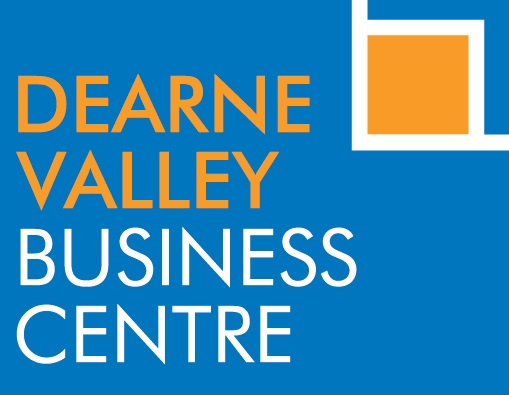News: License to frack in Rotherham
The government has opened the bidding process for companies seeking licences to explore for shale gas, the controversial energy source, underneath Rotherham.
Business and Energy Minister Matthew Hancock published details of how companies can apply for licences which will enable them to start initial exploration in large areas of the UK.
The British Geological Survey published results last year of the first independent study of the potential volume of shale gas in the Bowland Basin and beyond, which covers 11 counties in the North of England including South Yorkshire.
The survey identified that the whole borough of Rotherham could be sitting on reserves of shale gas and scientists have estimated on a central scenario that there is likely to be some 40 trillion cubic metres (1,300 trillion cubic feet) of shale gas in the ground in the Bowland Basin.
While this does not mean that this amount could be extracted for use, this will provide investors, operators and regulators with an indication of where to target future exploratory drilling, so that they can determine how much of the gas would be able to be commercially recovered. This is expected to be substantially lower than the total amount of gas in place because of technical and commercial limitations on the level of extraction.
A type of natural gas, shale gas has the potential to become an important energy source for the UK, as it is in the US, but extracting the gas using a method called "fracking" (hydraulic fracturing) has negative environmental impacts.
The licences provide the first step to starting drilling – but do not give absolute agreement to drill. On top of a licence, any further drilling application will then require planning permission, as well as permits from the Environment Agency and sign-off from the Health and Safety Executive.
Business and Energy Minister Matthew Hancock said: "Unlocking shale gas in Britain has the potential to provide us with greater energy security, jobs and growth. We must act carefully, minimising risks, to explore how much of our large resource can be recovered to give the UK a new home-grown source of energy. As one of the cleanest fossil fuels, shale gas can be a key part of the UK's answer to climate change and a bridge to a much greener future."
Companies have pledged to engage with communities early and to provide community benefits in areas where shale is commercially extracted.
These will include £100,000 for communities situated near each exploratory well, and 1% of revenues from every production site.
Two licences have already been granted that cover areas of the Rotherham borough. Alkane owns the Petroleum Exploration and Development Licence (PEDL) for the area around Maltby, which extend to all of the hydrocarbons recoverable from the licence area. So far Alkane has been focusing on the extraction of coal mine methane at the former Maltby Colliery that does not involve any form of fracking or any other processes of well stimulation associated with coal bed methane or shale gas extraction. The methane is produced by coal left underground, following conventional mining operations carried out over the years the mine was in operation.
Dart Energy owns the PEDL that covers Firbeck, Laughton en le Morthern and parts of Thurcroft and Dinnington. Anti-fracking campaigners have been keeping a close eye on Dart operations at nearby Bawtry.
Alkane Energy website
Images: Alkane
Business and Energy Minister Matthew Hancock published details of how companies can apply for licences which will enable them to start initial exploration in large areas of the UK.
The British Geological Survey published results last year of the first independent study of the potential volume of shale gas in the Bowland Basin and beyond, which covers 11 counties in the North of England including South Yorkshire.
The survey identified that the whole borough of Rotherham could be sitting on reserves of shale gas and scientists have estimated on a central scenario that there is likely to be some 40 trillion cubic metres (1,300 trillion cubic feet) of shale gas in the ground in the Bowland Basin.
While this does not mean that this amount could be extracted for use, this will provide investors, operators and regulators with an indication of where to target future exploratory drilling, so that they can determine how much of the gas would be able to be commercially recovered. This is expected to be substantially lower than the total amount of gas in place because of technical and commercial limitations on the level of extraction.
A type of natural gas, shale gas has the potential to become an important energy source for the UK, as it is in the US, but extracting the gas using a method called "fracking" (hydraulic fracturing) has negative environmental impacts.
The licences provide the first step to starting drilling – but do not give absolute agreement to drill. On top of a licence, any further drilling application will then require planning permission, as well as permits from the Environment Agency and sign-off from the Health and Safety Executive.
Business and Energy Minister Matthew Hancock said: "Unlocking shale gas in Britain has the potential to provide us with greater energy security, jobs and growth. We must act carefully, minimising risks, to explore how much of our large resource can be recovered to give the UK a new home-grown source of energy. As one of the cleanest fossil fuels, shale gas can be a key part of the UK's answer to climate change and a bridge to a much greener future."
Companies have pledged to engage with communities early and to provide community benefits in areas where shale is commercially extracted.
These will include £100,000 for communities situated near each exploratory well, and 1% of revenues from every production site.
Two licences have already been granted that cover areas of the Rotherham borough. Alkane owns the Petroleum Exploration and Development Licence (PEDL) for the area around Maltby, which extend to all of the hydrocarbons recoverable from the licence area. So far Alkane has been focusing on the extraction of coal mine methane at the former Maltby Colliery that does not involve any form of fracking or any other processes of well stimulation associated with coal bed methane or shale gas extraction. The methane is produced by coal left underground, following conventional mining operations carried out over the years the mine was in operation.
Dart Energy owns the PEDL that covers Firbeck, Laughton en le Morthern and parts of Thurcroft and Dinnington. Anti-fracking campaigners have been keeping a close eye on Dart operations at nearby Bawtry.
Alkane Energy website
Images: Alkane













0 comments:
Post a Comment